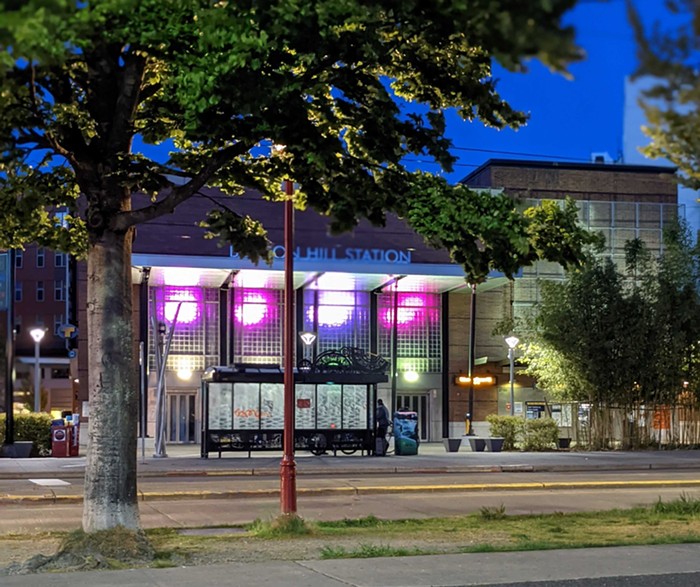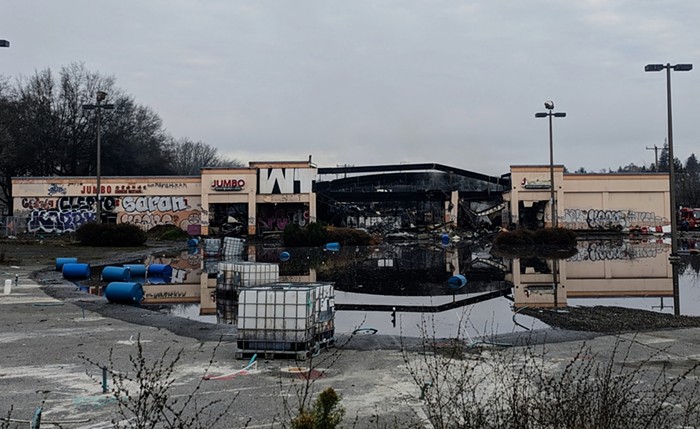
The popular talk about the Seattle freeze concerns the absence of friendliness. The people in this city are not, it is believed, as welcoming or openly good-natured as, say, the folks in places like Denver or Memphis or Atlanta. Wikipedia even has an entry devoted to this topic. It claims that "newcomers to the area have described Seattleites as being standoffish, cold, distant, and distrustful." But all of this is pretty meaningless. The established citizens of a city love to believe they have a particular kind of character, something that distinguishes them from the rest. In our case, it is being impolite to strangers. How cute. But there is a real and more politically powerful character to this city that is found on websites and social media pages of popular groups like Safe Seattle, or the grievance platform Nextdoor, or in the comments sections of particular kinds of local stories. Revealingly, it is not included in any description of the Seattle Freeze. This is a heartlessness toward people who are less fortunate and, usually because of economic reasons, have been forced to live on the streets. This is the our city's real freeze.
The surprisingly general negative attitude—'general' because we consider our city to be progressive—toward homelessness is nothing but mean. We clearly have a huge homeless population in Seattle because housing is determined not by use but by value, and we live in an economy that permits only two forms of inflation: that of financial assets and homes (which in truth are also financial assets, with the main difference being that the "home" side of a house can be easily de-linked from its asset side without losing its substance—the same is not true for shares and bonds and securities). As I wrote in an earlier post, the most expensive cities in the US for single-family homes are now San Francisco, San Jose, and Seattle (in that order), and with good reason: these are tech cities with corporations whose shares are also spectacularly overvalued. (Amazon quickly followed Apple to become the second company in the history of capitalism to cross the market value point of $1 trillion.)
Indeed, a study conducted by the nonprofit Applied Survey Research found that "Seventy-one percent (71%) of respondents reported they were living in San Francisco at the time they most recently became homeless, an increase from 61% in 2013." Only those with bizarre minds can dissociate this fact from the fact that the median price for homes in that tech city is $1.4 million. And one form of this bizarre-mindedness can freeze the Seattle heart like nobody's business. But homelessness has exploded at the same time that the cost of rent and the values of homes has soared to ever-new heights. And because we have no policy that makes housing even vaguely a right, we have, by scale, more people living on the streets than LA and NYC, a city whose citizens, the Seattle Times reported in April, have "some form of a legal right to shelter."
This summer, the Seattle Times "asked readers what they wanted to understand about homelessness," and the most popular question was: “Why are the police not enforcing the laws against camping in Seattle’s parks and streets?” You would think that the answer would be pretty obvious to a person who lives in a progressive city. It is not morally easy to do such a thing, even if it is the law. I mean, it's kind of cruel. You know, it has to do with sympathy and expressing mercy. That kind of normal human thing. We are, after all, a very social ape. And the greatness of our sociality is not defined by the worship of the strong but the protection of the weak. I mean, even bees do it.
Bees Band Together to Help Friend in Need https://t.co/ZbpfG14LNh
— Helen Shipley (@Ladyshippers) September 4, 2018
But no, these Seattle Freeze people are certain that there must be some other answer that explains why the authorities aren't arresting and sweeping good-for-nothing homeless people out of the city's limits. In their minds, it must have something to do with an imbalance in the justice system. In this perversely twisted vision of the situation, they see themselves as the victims because they have to follow the laws and the people on the streets are free to do what ever they want. How unfair.
In the inverted world of the real Seattle Freeze, homeless people must grow on trees and fall to the street. And this is why it's perfectly reasonable to sweep them away like so many dead leaves.


















